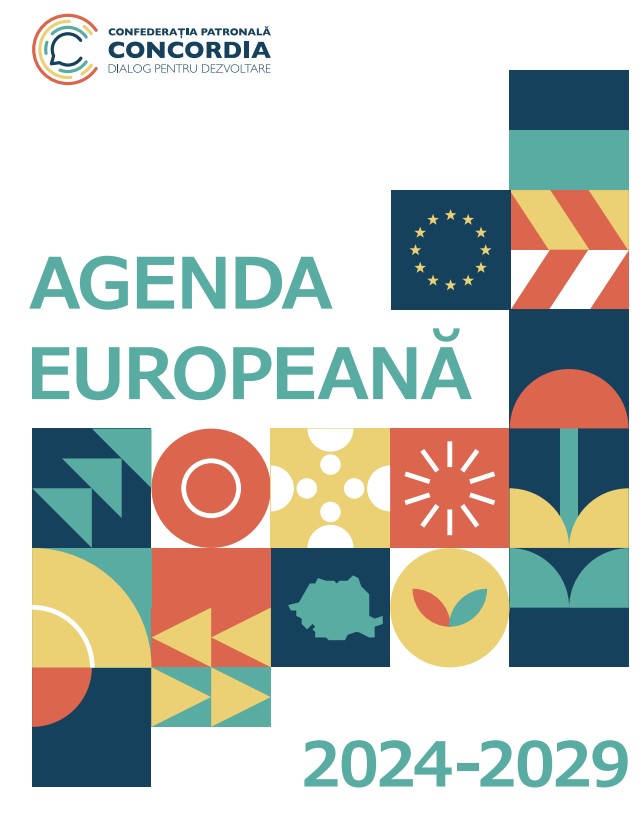
National Actions

The launch of their document European Agenda – 2024-2029, under the motto Strong Economy, Strong Europe, aligns with their mission to promote a competitive and sustainable business framework in Romania and Europe. Concordia proposes a vision and a set of priorities and objectives for the next mandate that reflect the challenging context in which the European economy finds itself and the pressing need for the EU to become globally competitive again. It is the only way to protect European values.
Through this document, Concordia reiterates its commitment to promoting the competitiveness and economic resilience of the European Union, alongside its commitment to the Green Deal and supporting the European social model. They propose a series of concrete and innovative measures to strengthen the Single Market, reduce regulatory barriers, and promote innovation and sustainable development. They also underline the importance of enhancing European social dialogue and investing in skills development for the green and digital transitions to ensure an agile and competitive workforce in Europe.
With over 80% of national legislation derived from European legislation and more than 95 billion euros attracted from European funds, their path within the EU is clear: Romania has become a significantly more developed country since its accession, and in the next five years, it can reach the next level of development and competitiveness, as well as increase its involvement in EU decisions.
